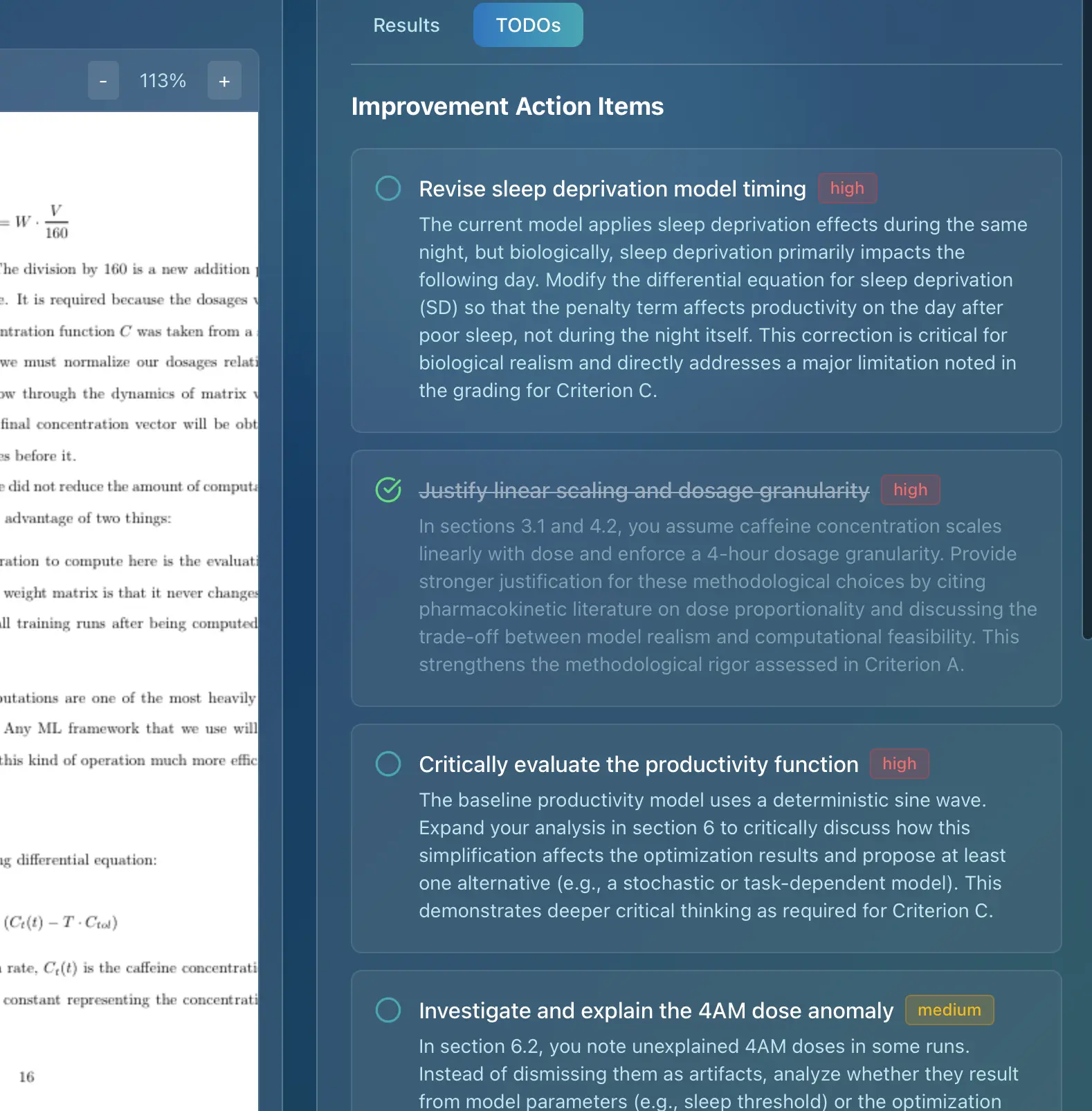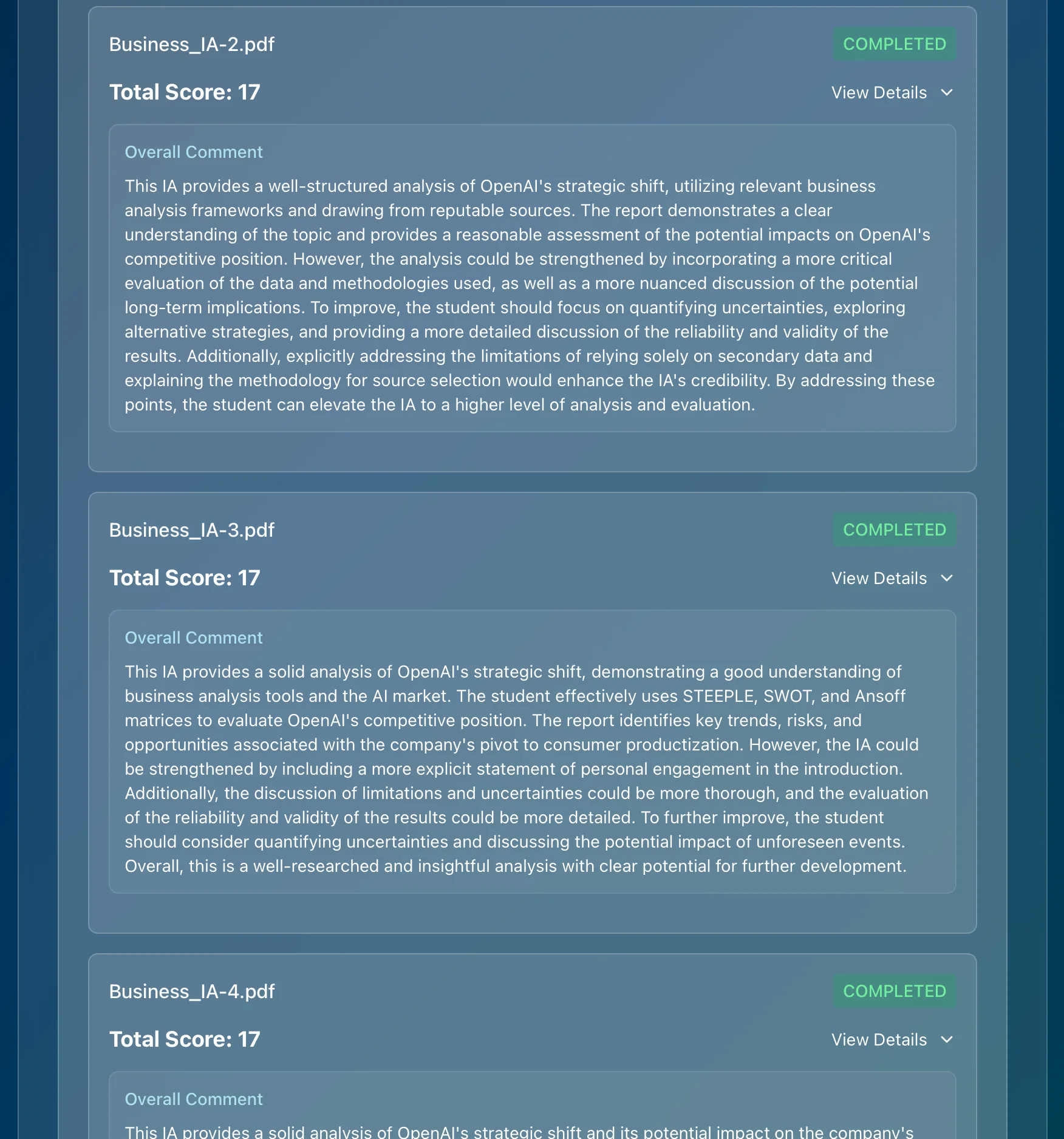Analyzing Classic Studies in Your Psychology Extended Essay
Are you an IB Psychology student tackling the Extended Essay? A crucial part of earning a high grade is demonstrating a deep understanding of classic studies. This blog post will guide you through the process of effectively analyzing these studies, ensuring you meet the rigorous demands of the IB Psychology Extended Essay criteria. We'll break down how to choose appropriate studies, analyze them critically, and integrate them seamlessly into your essay to achieve a top score. By the end of this guide, you'll have a clear roadmap for success and be well on your way to crafting a compelling and insightful Extended Essay.
Introduction (Answer the Query Immediately)
The IB Psychology Extended Essay requires you to conduct independent research and present your findings in a structured and analytical manner. A key component of a successful essay is the ability to analyze classic studies effectively. This means going beyond simply summarizing research and instead critically evaluating methodologies, findings, and implications. This guide will provide you with a step-by-step approach to selecting, analyzing, and integrating classic studies into your Extended Essay, helping you achieve a high score and demonstrate a thorough understanding of psychological principles. We'll cover everything from choosing the right studies to avoiding common pitfalls, ensuring your essay is both insightful and academically rigorous.
Struggling with IB Assessments?
Get instant, detailed feedback on your work with AI that understands IB criteria.

Core Content Sections
Choosing the Right Classic Studies
Selecting appropriate classic studies is the first crucial step. Not all studies are created equal, and some will be more relevant to your research question than others.
- Relevance to your Research Question: The chosen studies should directly address or inform your research question. Avoid studies that are only tangentially related.
- Significance in the Field: Opt for studies that have had a significant impact on the field of psychology. These are often studies that introduced new concepts, challenged existing theories, or sparked further research.
- Availability of Information: Ensure you can access sufficient information about the study, including the methodology, results, and any subsequent critiques.
Example: If your research question explores the impact of social media on adolescent self-esteem, you might consider classic studies on social comparison theory (e.g., Festinger's Social Comparison Theory) and its modern adaptations in the context of online interactions.
Understanding the Methodology
A thorough understanding of the methodology used in classic studies is essential for critical analysis.
- Research Design: Identify the type of research design used (e.g., experiment, correlational study, case study).
- Participants: Understand the characteristics of the participants (e.g., age, gender, cultural background) and how this might influence the findings.
- Procedures: Detail the procedures used in the study, including any manipulations or interventions.
- Data Collection Methods: Identify the methods used to collect data (e.g., questionnaires, interviews, observations).
Example: In Milgram's obedience experiment, understanding the experimental design (controlled observation), the participant pool (adult males), the procedure (administering shocks), and the data collection method (observing obedience levels) is crucial for a comprehensive analysis.
Analyzing the Findings
Analyzing the findings involves interpreting the results of the study and drawing meaningful conclusions.
- Statistical Significance: Determine whether the findings are statistically significant, indicating that they are unlikely to have occurred by chance.
- Effect Size: Assess the magnitude of the effect observed in the study. A larger effect size indicates a stronger relationship between variables.
- Limitations: Identify any limitations of the study, such as methodological flaws or biases.
- Implications: Discuss the implications of the findings for our understanding of human behavior.
Example: In Asch's conformity experiment, analyzing the findings involves understanding the percentage of participants who conformed to the incorrect majority opinion, the statistical significance of these results, and the implications for understanding social influence.
Critically Evaluating Classic Studies
Critical evaluation is a cornerstone of a high-scoring Extended Essay. It demonstrates your ability to think independently and assess the strengths and weaknesses of research.
- Methodological Limitations: Identify any flaws in the study's methodology that might affect the validity of the findings. This could include issues with sampling, experimental control, or measurement.
- Ethical Considerations: Evaluate whether the study adhered to ethical guidelines. Consider issues such as informed consent, deception, and protection from harm.
- Cultural Bias: Assess whether the study's findings are generalizable across different cultures. Consider whether the sample was representative of the population as a whole.
- Historical Context: Consider the historical context in which the study was conducted. How might societal norms and values have influenced the findings?
Example: When evaluating Zimbardo's Stanford Prison Experiment, consider the ethical concerns surrounding the psychological harm inflicted on participants, the lack of ecological validity, and the potential for researcher bias.
Integrating Classic Studies into Your Essay
Integrating classic studies effectively into your Extended Essay involves more than just summarizing their findings.
- Use as Evidence: Use studies to support your arguments and claims. Provide specific details about the study's methodology and findings to strengthen your reasoning.
- Compare and Contrast: Compare and contrast different studies to highlight similarities and differences in their findings. This can help you develop a more nuanced understanding of the topic.
- Relate to Your Research Question: Always relate the studies back to your research question. Explain how the studies inform your understanding of the issue you are investigating.
- Proper Referencing: Ensure you properly cite all sources using the appropriate referencing style (e.g., APA, MLA).
Example: If your research question explores the effectiveness of different therapeutic approaches for treating depression, you could integrate classic studies on cognitive behavioral therapy (CBT) and psychodynamic therapy, comparing their methodologies, findings, and effectiveness rates.
Common Challenges/Mistakes Section
Many students struggle with analyzing classic studies effectively. Here are some common mistakes to avoid:
- Superficial Summaries: Avoid simply summarizing the study's findings without providing critical analysis.
- Lack of Context: Failing to provide sufficient context about the study's methodology and historical background.
- Overgeneralization: Making broad generalizations based on the findings of a single study.
- Ignoring Limitations: Failing to acknowledge the limitations of the study.
- Plagiarism: Presenting someone else's work as your own. Always cite your sources properly.
Solution: To avoid these mistakes, focus on developing a deep understanding of the studies you are analyzing, critically evaluating their strengths and weaknesses, and integrating them thoughtfully into your essay.
Pro Tip: Get AI-Powered Grading
Stop second-guessing your grades. Get instant feedback aligned with official IB rubrics.

Advanced Tips/Strategies Section
To take your analysis to the next level, consider these advanced tips:
- Meta-Analysis: Explore meta-analyses that synthesize the findings of multiple studies on a particular topic. This can provide a more comprehensive and reliable understanding of the evidence.
- Replication Studies: Investigate whether the classic studies have been replicated and whether the findings have been consistent across different replications.
- Modern Adaptations: Explore how classic studies have been adapted and applied in modern contexts. This can demonstrate your ability to connect theory to practice.
- Counterarguments: Acknowledge and address counterarguments to your analysis. This shows that you have considered different perspectives and are able to defend your position.
Example: If you are analyzing a classic study on attachment theory, you could explore modern research on attachment styles in adult relationships and consider how these findings support or challenge the original theory.
Technology and Modern Assessment Section
Technology is transforming the way we approach IB assessments, particularly in subjects like Psychology. AI-powered tools are becoming increasingly valuable for both students and teachers. For example, Marksy, as a leading AI grading assistant, helps teachers provide consistent, detailed feedback on IB Extended Essays and other assessments.
Marksy utilizes official IB rubrics to provide accurate and criterion-based feedback, saving educators significant time while ensuring fairness and consistency in grading. This allows teachers to focus on providing personalized support to students, helping them improve their understanding and performance.
For students, understanding how their work aligns with the official IB criteria is crucial. AI tools like Marksy can help by providing detailed feedback on areas for improvement, allowing them to refine their analysis of classic studies and strengthen their overall essay. By understanding the specific criteria and receiving targeted feedback, students can optimize their work and achieve higher scores.
AI grading assistants use complex algorithms to assess student work against the official IB rubrics, ensuring that the feedback is accurate and aligned with the assessment criteria. This helps to eliminate subjectivity and bias in grading, providing students with a fair and consistent evaluation of their work.
Conclusion with Clear Next Steps
Analyzing classic studies is a critical skill for success in your IB Psychology Extended Essay. By following the steps outlined in this guide, you can choose appropriate studies, understand their methodologies, analyze their findings, and integrate them effectively into your essay. Remember to critically evaluate the studies, acknowledge their limitations, and relate them back to your research question.
Next Steps:
- Choose your topic and research question: Select a topic that genuinely interests you and formulate a focused research question.
- Identify relevant classic studies: Research and select classic studies that directly address or inform your research question.
- Analyze the studies: Thoroughly analyze the methodology, findings, and limitations of each study.
- Critically evaluate the studies: Assess the strengths and weaknesses of each study, considering ethical considerations, cultural bias, and historical context.
- Integrate the studies into your essay: Use the studies as evidence to support your arguments and claims, comparing and contrasting different studies to develop a nuanced understanding of the topic.
- Seek feedback: Ask your teacher or a peer to review your essay and provide feedback on your analysis of the classic studies.
- Refine your essay: Revise your essay based on the feedback you receive, ensuring that your analysis is clear, concise, and insightful.
Ready to take your IB Psychology Extended Essay to the next level? Try Marksy for free today and experience the power of AI-driven feedback! See how our AI grading assistant can help you understand the IB criteria, improve your analysis of classic studies, and achieve a higher score. For teachers, streamline your grading workflow and provide consistent, detailed feedback to your students with Marksy. Sign up for a free trial now and unlock your full potential!